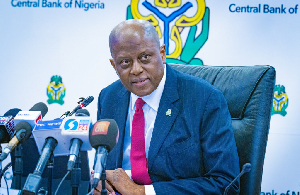The Federal Government’s reported plan to sell parts of Nigeria’s national assets—particularly its stakes in Joint Venture (JV) oil operations—has sparked resistance from organised labour.
The Nigeria Union of Petroleum and Natural Gas Workers (NUPENG) and the Petroleum and Natural Gas Senior Staff Association of Nigeria (PENGASSAN) have described the proposal as “dangerous” and a threat to the country’s financial stability.
NUPENG raises concerns over PIA
At a press conference in Abuja, Festus Osifo, president of PENGASSAN, said government stakes in JV oil assets currently range between 55% and 60%.
He warned that selling 30% to 35% of those holdings in exchange for quick revenue would weaken Nigeria’s major foreign exchange earner and endanger the long-term health of the Nigerian National Petroleum Company Limited (NNPCL).
“If 30 or 40 years ago these assets were sold, where would Nigeria be getting foreign exchange today to stabilise our currency?” Osifo asked.
NUPENG’s president, Williams Akporeha, criticised the inconsistency of government policy in the oil sector.
He said the Petroleum Industry Act (PIA), which was only enacted three years ago, has not been given enough time to stabilise before attempts to amend it are being considered.
The case for asset sales
“The investors are just beginning to understand the PIA and how to key in. Suddenly, the government is talking about amendments,” Akporeha argued, warning that inconsistent laws could scare away investment.
He urged President Bola Tinubu to halt the proposal and instead focus on boosting oil production to 3 million barrels per day within the next two years, while strengthening investor confidence.
Despite union resistance, proponents of asset sales argue that Nigeria could benefit in several ways.
First, divesting part of its oil holdings could raise billions of dollars in immediate cash, helping the government plug fiscal gaps, reduce borrowing, and stabilise the economy.
Second, private sector ownership might bring efficiency and better management into JV assets, reducing waste and corruption that have long plagued NNPC operations.
Supporters also say foreign investors would inject new capital and technology, potentially boosting oil production at a time when Nigeria struggles to meet its OPEC quota.
The risks of selling national assets
On the other hand, labour unions and critics highlight the risks. Reducing government stakes could weaken Nigeria’s long-term revenue streams from crude oil, which still accounts for the majority of foreign exchange earnings.
They argue that once sold, these strategic assets cannot be easily recovered, leaving future generations with fewer resources.
There are also fears that divestment could lead to job cuts, undermine energy security, and leave NNPC unable to meet obligations like staff salaries and welfare.
Critics warn that prioritising short-term gains over long-term sustainability amounts to mortgaging Nigeria’s economic future.
Balancing short-term needs with long-term goals
The debate over national asset sales reveals a fundamental dilemma: Nigeria urgently needs cash to fund its budget and stabilise the economy, but selling strategic assets could weaken its prospects.
While labour unions insist on protecting NNPC and consolidating the PIA, government officials may argue that private capital is the quickest path to reviving production and unlocking revenue.
For now, the battle lines are clear—labour unions stand firmly opposed, while the government weighs the potential benefits. The decision will determine not just the fate of NNPC, but also Nigeria’s broader energy future.
Business News of Wednesday, 24 September 2025
Source: www.legit.ng













